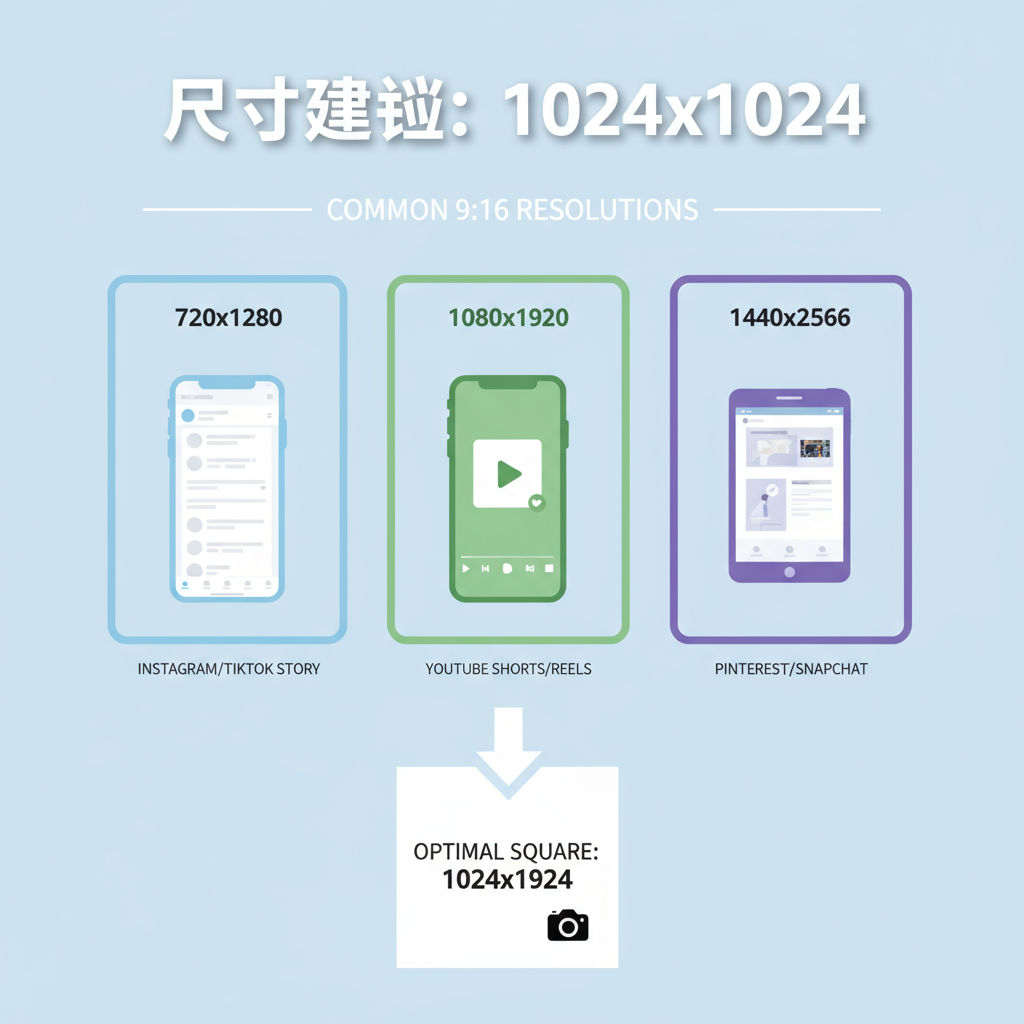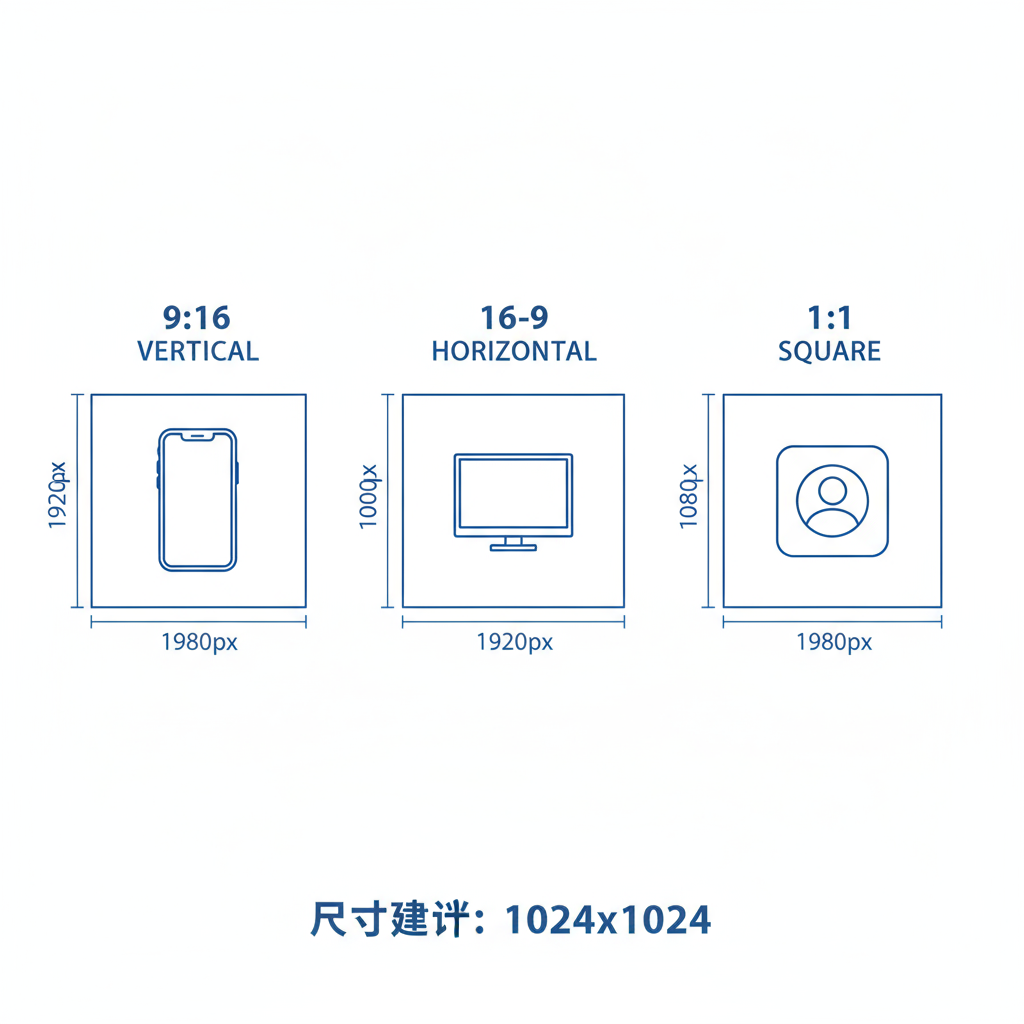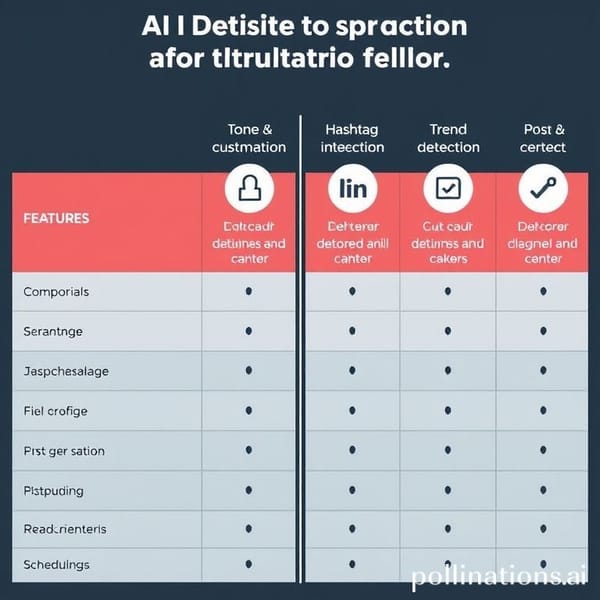9:16 Aspect Ratio Sizes and Vertical Video Dimensions
Learn the 9:16 aspect ratio specs, common pixel sizes, and best practices for creating and exporting vertical videos for mobile platforms.

Understanding the 9:16 Aspect Ratio
The 9:16 aspect ratio has rapidly become the gold standard for vertical video on mobile-first platforms. If you’ve scrolled through TikTok, Instagram Reels, or YouTube Shorts, you’ve already experienced it in action. This tall, immersive format perfectly matches the way we naturally hold our smartphones, making it a powerful tool for creators wanting maximum impact on mobile audiences.
In simple terms, 9:16 means the width is 9 units and the height is 16 units, resulting in a video that is taller than it is wide.

Where 9:16 Is Used
- TikTok: Entirely vertical, optimized for rapid swiping and short attention spans.
- Instagram Reels & Stories: Full-screen vertical video to capture attention instantly.
- YouTube Shorts: YouTube’s mobile-friendly response to short-form content trends.
- Snapchat & Facebook Stories: Designed for quick sharing and mobile engagement.
---
Common 9:16 Pixel Dimensions
While aspect ratio is about proportions, the resolution determines the exact number of pixels in your video. Popular vertical resolutions vary by device and quality requirements.
| Resolution | Width | Height | Common Use |
|---|---|---|---|
| HD | 720 | 1280 | Basic vertical HD for web uploads |
| Full HD | 1080 | 1920 | Most common; excellent quality/size balance |
| Quad HD | 1440 | 2560 | Higher quality for premium content |
| 4K UHD | 2160 | 3840 | Maximum detail for high-end production |
Tip: Match your exported resolution to platform guidelines to avoid unwanted compression.
---
Aspect Ratio vs. Resolution
Never confuse aspect ratio with resolution:
- Aspect Ratio: The proportional relationship between width and height (e.g., 9:16).
- Resolution: The actual pixel dimensions (e.g., 1080x1920).
Any resolution that maintains the same proportional width-to-height ratio will preserve the 9:16 format.
---
Comparing Ratios: 9:16 vs. Others
Understanding how 9:16 stacks against other formats can guide your content strategy.
| Ratio | Orientation | Example Use |
|---|---|---|
| 9:16 | Vertical | TikTok, Instagram Reels |
| 16:9 | Horizontal | YouTube long-form videos, TV broadcasts |
| 1:1 | Square | Instagram feed posts |
| 4:5 | Portrait | Instagram feed photos & videos |
---
Why Vertical Works Best on Mobile
With a phone held vertically, 9:16 video fills the whole screen, eliminating the need to rotate the device. The advantages include:
- Higher engagement rates — barrier-free viewing.
- Full immersion — focus stays on your content.
- Superior ad performance — vertical ads often generate stronger click-through rates.

---
Tips for Framing and Composition in 9:16
Well-composed vertical shots make a big difference:
- Center your subject to avoid unintentional cropping.
- Apply the rule of thirds vertically for balance.
- Leave headroom to prevent awkward cut-offs.
- Reduce background clutter to keep attention on the focal point.
Pro tip: Enable camera grid overlays during shooting.
---
Best Practices for Exporting in 9:16
Most editing tools (Adobe Premiere Pro, Final Cut Pro, DaVinci Resolve) let you create vertical sequences easily.
For Adobe Premiere Pro:
- Go to Sequence Settings → set Frame Size to 1080x1920.
- Confirm Pixel Aspect Ratio is square (1.0).
- Export in H.264 while keeping vertical resolution intact.
Example Premiere Pro export preset:
Format: H.264
Video: 1080x1920
Frame rate: 30fps
Bitrate: VBR, 2 pass, Target 10 Mbps
Audio: AAC, 320 kbps---
Common Mistakes to Avoid
Creators often make errors that can hurt vertical video quality:
- Incorrect cropping: Avoid cutting down 16:9 footage — it weakens composition.
- Poor text placement: Keep captions away from UI overlay zones.
- Overcompression: Start with a higher bitrate before platform processing.
- Inconsistent ratios: Mixing formats distracts viewers.
---
Optimizing for Each Platform
Each app has specific technical requirements — knowing them maximizes playback quality.
| Platform | Aspect Ratio | Recommended Resolution | Max File Size |
|---|---|---|---|
| TikTok | 9:16 | 1080x1920 | Up to 287.6MB (15 min videos) |
| Instagram Reels | 9:16 | 1080x1920 | Up to 4GB |
| YouTube Shorts | 9:16 | 1080x1920 | Up to 128GB / 12h |
| Snapchat | 9:16 | 1080x1920 | 32MB for ads, larger for stories |
---
Quick Reference: 9:16 Sizes

| Resolution | Pixels | Use Case |
|---|---|---|
| SD Vertical | 480x854 | Low bandwidth environments |
| HD Vertical | 720x1280 | Basic high-definition |
| Full HD Vertical | 1080x1920 | Most platforms’ sweet spot |
| 4K Vertical | 2160x3840 | High-end, future-proof content |
---
Conclusion
What size is 9:16? While the ratio itself stays constant — width is always 9 parts, height 16 — the resolution will depend on your creative goals and platform. Smart creators:
- Align videos with natural mobile viewing angles.
- Select resolution based on performance needs and file size limits.
- Avoid common pitfalls like poor cropping or text placement.
Mastering the 9:16 aspect ratio ensures your vertical videos look sharp, professional, and engaging across all major platforms. Use the tables above as your go-to reference whenever planning or exporting vertical content — and start creating mobile-first videos that truly stand out.




